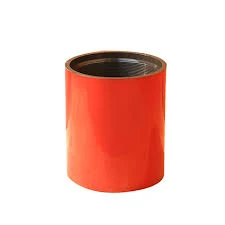- Afrikaans
- Albanian
- Amharic
- Arabic
- Armenian
- Azerbaijani
- Basque
- Belarusian
- Bengali
- Bosnian
- Bulgarian
- Catalan
- Cebuano
- Corsican
- Croatian
- Czech
- Danish
- Dutch
- English
- Esperanto
- Estonian
- Finnish
- French
- Frisian
- Galician
- Georgian
- German
- Greek
- Gujarati
- Haitian Creole
- hausa
- hawaiian
- Hebrew
- Hindi
- Miao
- Hungarian
- Icelandic
- igbo
- Indonesian
- irish
- Italian
- Japanese
- Javanese
- Kannada
- kazakh
- Khmer
- Rwandese
- Korean
- Kurdish
- Kyrgyz
- Lao
- Latin
- Latvian
- Lithuanian
- Luxembourgish
- Macedonian
- Malgashi
- Malay
- Malayalam
- Maltese
- Maori
- Marathi
- Mongolian
- Myanmar
- Nepali
- Norwegian
- Norwegian
- Occitan
- Pashto
- Persian
- Polish
- Portuguese
- Punjabi
- Romanian
- Russian
- Samoan
- Scottish Gaelic
- Serbian
- Sesotho
- Shona
- Sindhi
- Sinhala
- Slovak
- Slovenian
- Somali
- Spanish
- Sundanese
- Swahili
- Swedish
- Tagalog
- Tajik
- Tamil
- Tatar
- Telugu
- Thai
- Turkish
- Turkmen
- Ukrainian
- Urdu
- Uighur
- Uzbek
- Vietnamese
- Welsh
- Bantu
- Yiddish
- Yoruba
- Zulu
Compression Tubing Connector for Efficient Fluid Transfer Solutions and Applications
The Importance and Benefits of Compression Tubing Couplers in Modern Applications
Compression tubing couplers are essential components in various industrial and commercial applications, playing a pivotal role in ensuring secure and efficient connections in piping systems. As industries evolve and demands for reliability and efficiency rise, understanding the importance and benefits of these couplers becomes increasingly vital.
What Are Compression Tubing Couplers?
Compression tubing couplers are specialized fittings designed to connect two sections of tubing securely. Typically made from durable materials like brass, stainless steel, or plastic, these couplers feature a compression mechanism that grips the tubing tightly, creating a leak-proof seal. The mechanism typically consists of a nut and a ferrule that compresses around the tubing when the nut is tightened, preventing any fluid or gas leakage.
Key Applications
Compression tubing couplers find utility across a myriad of sectors, including plumbing, HVAC (Heating, Ventilation, and Air Conditioning), automotive, and medical fields. In plumbing, these couplers facilitate the connection of water pipes, ensuring a steady flow with minimal risk of leaks. In HVAC systems, they are crucial for ensuring that refrigerant lines are properly secured, which enhances efficiency and performance. In the medical field, compression couplers are used in various devices to maintain the integrity of fluid pathways, ensuring their reliability in critical applications.
Advantages of Using Compression Tubing Couplers
1. Leak-Proof Connections One of the standout features of compression tubing couplers is their ability to create a tight seal, which minimizes the risk of leaks. This is particularly important in applications where fluids or gases are involved, as leaks can lead to inefficiencies, safety hazards, and increased operational costs.
compression tubing coupler

2. Ease of Installation Compression couplers are relatively easy to install compared to other types of fittings. They do not require any special tools or skills, making them accessible for both professionals and DIY enthusiasts. This ease of use can save time during installation and reduce labor costs in industrial settings.
3. Versatility These couplers are compatible with various types of tubing materials, including copper, plastic, and aluminum. This versatility allows for their use in diverse applications and provides flexibility in system design.
4. Reusability Unlike some permanent connections, compression couplers can often be disassembled and reused, making them a cost-effective option in projects where changes or repairs may be necessary. This feature is particularly beneficial in temporary setups or systems that require regular maintenance.
5. Robustness Compression couplers are designed to withstand high pressure and temperature variations, making them suitable for demanding environments. Their durability ensures a long service life, reducing the need for frequent replacements and contributing to overall system reliability.
6. Cost-Effectiveness When considering the long-term benefits, compression tubing couplers present a cost-effective solution. The reduced risk of leaks, ease of installation, and robustness contribute to lower maintenance costs and improved system longevity.
Conclusion
In conclusion, compression tubing couplers are a fundamental component in many applications across various industries. Their ability to provide secure, leak-proof connections and their ease of installation make them indispensable in ensuring the efficiency and reliability of piping systems. As industries continue to innovate and evolve, the demand for effective and reliable connection solutions like compression couplers will undoubtedly grow.
For anyone involved in the design, maintenance, or installation of fluid or gas management systems, understanding the role and benefits of compression tubing couplers is crucial. By leveraging these versatile fittings, industries can enhance system performance, reduce operational costs, and ultimately achieve better outcomes in their projects. Choosing the right compression coupler not only contributes to immediate project needs but also sets the foundation for long-term success in fluid control and management applications.
-
Tubing Pup Joints: Essential Components for Oil and Gas OperationsNewsJul.10,2025
-
Pup Joints: Essential Components for Reliable Drilling OperationsNewsJul.10,2025
-
Pipe Couplings: Connecting Your World EfficientlyNewsJul.10,2025
-
Mastering Oilfield Operations with Quality Tubing and CasingNewsJul.10,2025
-
High-Quality Casing Couplings for Every NeedNewsJul.10,2025
-
Boost Your Drilling Efficiency with Premium Crossover Tools & Seating NipplesNewsJul.10,2025







